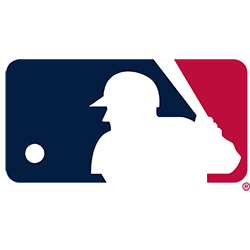 Now that Sinclair Broadcast Group has agreed to buy 21 regional sports networks (RSNs) from Disney, it’s clear that the purchase is merely the first step — but what comes next remains to be seen.
Now that Sinclair Broadcast Group has agreed to buy 21 regional sports networks (RSNs) from Disney, it’s clear that the purchase is merely the first step — but what comes next remains to be seen.
The deal is not final: the U.S. Justice Department must sign off on the deal, required as part of the larger transaction that saw Disney acquire many entertainment assets from 21st Century Fox.
The purchase does not include the YES Network, with the New York Yankees exercising a right of first refusal in a deal that will also include Amazon and Sinclair. And with Sinclair already partnering with the Chicago Cubs on the Marquee Sports Network, set to launch in 2020, Sinclair–already the biggest owner of local television stations in the United States–is now becoming a major force in the sports-broadcasting world, with the 21 RSNs currently holding broadcast rights for 16 NBA teams, 14 MLB teams and 12 NHL teams.
So what does Sinclair do next? Since the regional sports networks were placed on the market last year, we’ve speculated about what potential buyers (in our case, mostly MLB) could do with the assets. The total purchase price, between Sinclair and the Yankees, came in below expectations, and there’s a key issue why: the uncertain future of cable networks at a time when streaming technology and cord cutters are changing the economic landscape. Sinclair is now positioned to capitalize on direct-to-consumer streaming. But there’s no guarantee that as cable giants shrink, RSNs could lose a preferred place on basic cable and be relegated to a plus-fee sports tier, and in the end the teams could reclaim their rights and launch their own broadcast endeavors. But technology is likely to play a role in what the RSNs do, either in the form of some sort of Amazon partnership or from sports-betting revenues. From Reuters:
The company views live sports as a long term profitable business because of its scarcity.
“There are only 160 or so baseball games a year,” [Sinclair President and Chief Executive Officer Chris] Ripley said. “No matter how much money that Amazon or Google or Apple throws at the MLB (Major League Baseball), they can’t really change that dynamic very easily.”
Sinclair already distributes content to multiple cable, satellite and streaming companies, including YouTube, owned by Alphabet Inc’s Google. Adding more digital clients like Amazon would be just another distributor relationship, he said.
But the bigger play, according to Ripley, may be on sports-bettering revenues–an area where MLB might be more reluctant to tackle:
The acquisition will see Sinclair capitalizing on the new U.S. sports betting market, which is “a huge opportunity for this platform. The RSNs are ideally positioned in so many different ways to benefit from this mega-trend,” he said.
In addition to increased fan engagement and viewership, he expects a wave of new advertising dollars to come from what he thinks will be $1.5 billion to $2 billion of new ad revenue industry-wide “in short order,” from sportsbook operators and other companies marketing in the space.
Ripley also plans to eventually allow viewers to place bets right from their screens during live games, similar to how fans can wager in Europe now.
How that will work with MLB, NHL and NBA remains to be seen.
RELATED STORIES: Sinclair Lands 21 Regional Sports Networks: Report; Yankees, Amazon, Sinclair Close on YES Network Deal: Report; MLB Still in Running to Land Fox RSNs; Could 2019 Reshape Baseball Broadcasting Rights?; MLB, Amazon Among Suitors for Fox Regional Sports Networks
